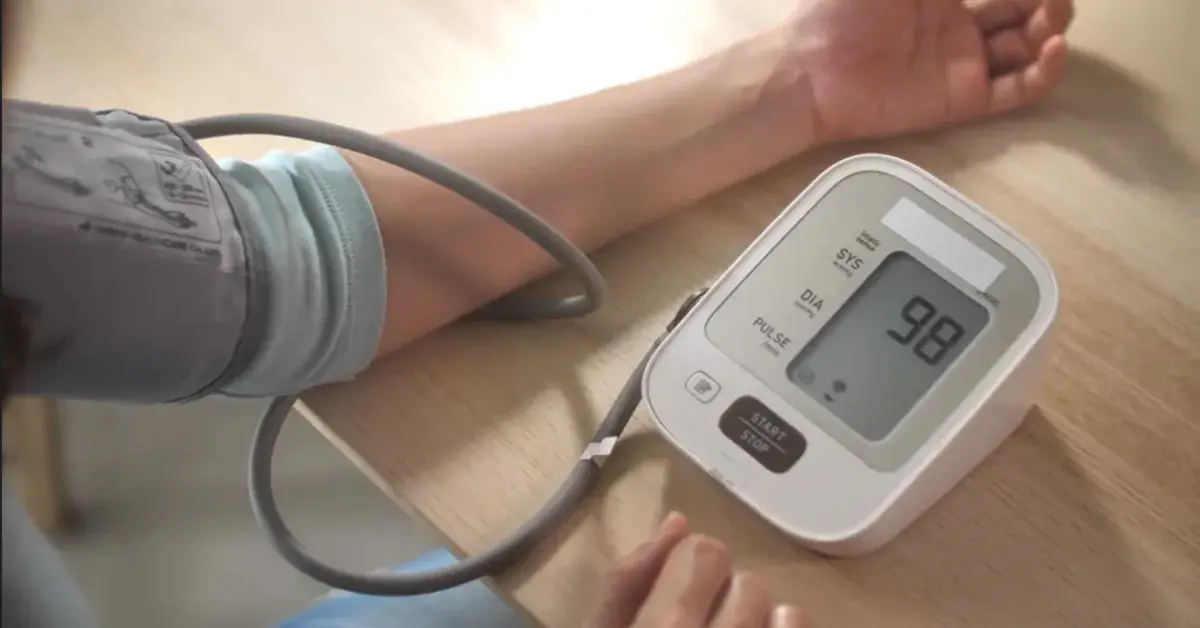Low blood pressure, also known as hypotension, happens when the blood pressure drops below normal levels. This means that there is not enough blood reaching the heart, brain, and other parts of the body. Ideally, blood pressure should be below 120/80 (systolic/diastolic), with systolic below 90 mm Hg and diastolic below 60 mm Hg considered low. While low blood pressure may not show specific symptoms, dizziness and fainting are common signs.
What is Low Blood Pressure?
In today’s busy and stressful life, complaints about low blood pressure are common. Symptoms include dizziness, darkening of vision, cold hands and feet, momentary fainting, and changes in blood pressure levels when lying down, standing up, or sitting. These issues often go unnoticed, but they can affect the proper functioning of vital organs such as the heart, kidneys, lungs, and brain.
According to Ayurveda, low blood pressure is associated with imbalances in the Vata, Pitta, and Kapha doshas. Although low blood pressure itself is not a disease, it can be an indication of underlying conditions like heart disease or nervous system disorders. While some people may not face any problems with low blood pressure, in certain cases, it can pose a risk to life. Therefore, it should not be ignored, and attention should be given to signs and symptoms to prevent complications.
Causes of Low Blood Pressure
There are many reasons for low blood pressure, but treating it becomes difficult until the exact cause is known.

Blood Deficiency: Sometimes, a sudden shortage of blood in the body due to internal bleeding, like a major injury, can lead to low blood pressure.
Nutritional Deficiency and Weakness: Lack of essential nutrients and weakness can also cause low blood pressure. When the body doesn’t produce enough red blood cells due to a deficiency in vital nutrients, it results in low blood pressure.
Heart Issues: Any problems related to the heart can lead to low blood pressure. Special caution is needed during such situations.
Dehydration: Not drinking enough water can cause weakness and, in turn, low blood pressure. Dehydration can also lead to other health issues like fever, vomiting, and diarrhea.
Pregnancy: Women may experience low blood pressure during pregnancy due to the rapid increase in the circulatory system.
Medications: Taking medications for high blood pressure, heart problems, Parkinson’s disease, depression, or pills to enhance sexual performance can sometimes cause low blood pressure.
Dehydration: This often happens to housewives or those with limited resources who, when thirsty, don’t drink water and skip meals when hungry. This habit can gradually lead to weakness and a decrease in blood pressure.
Acidity: Low blood pressure can also be caused by acidity. When acidity occurs in the stomach, it generates heat, resulting in a mild fever. Excessive heat in the stomach can cause the body’s water to evaporate, leading to weakness and low blood pressure.
Causes of diseases: If you have other health issues like diabetes, thyroid problems, Addison’s disease, etc., you could be at risk of low blood pressure. Additionally, conditions like dizziness, dengue, stress, a stroke, fear, infections, and more could lead to this problem.
Scientists say that about two out of ten people experience a drop in blood pressure due to stress or anger. In some cases, this can lead to a stroke, and it might even result in death. Research suggests that during anger, blood pressure usually rises, but for some people, it can drop.
Low Blood Pressure Complications:
- If you have low blood pressure and are experiencing symptoms like dizziness, fatigue, nausea, it could be a serious issue. It may lead to kidney and heart problems, and you could be at risk of heart failure.
- Moreover, it can damage your nervous system and brain.
- Neglecting low blood pressure during pregnancy could result in complications like stillbirth.
- It may also lead to conditions such as stroke, dementia, brain disorders, kidney disease, etc.
- Frequent bouts of dizziness might cause people to fall, leading to serious injuries.
- Shock (sudden trauma) can occur, causing severe damage to various organs and even be life-threatening.
- Internal bleeding may increase the risk of blood infections.
Symptoms of Low Blood Pressure
When you suddenly feel very weak or experience symptoms like dizziness, it could be due to low blood pressure. Mainly, signs such as fatigue, depression, nausea, increased thirst, pale skin, feeling cold, short and rapid breaths, chest pain, irregular heartbeat, high fever, stiff neck, and, if low blood pressure persists for a long time, vomiting and diarrhea, fainting, extreme fatigue, blurred or no vision for some times, etc., are common indicators of low blood pressure.
Prevention Tips for Low Blood Pressure
To avoid the risk of low blood pressure, it’s better to adopt precautionary measures in time. For this, making changes in lifestyle and diet is essential.
Lifestyle:
- If you have low blood pressure, avoid getting up suddenly, as it can lead to dizziness and the risk of falling. Gradually change your posture.
- Avoid consuming heavy meals and eating untimely, as it can cause low blood pressure. In such a situation, blood flow to the digestive system increases rapidly, but the rest of the body slows down. This can make a person feel lethargic. If you have low blood pressure, reduce the intake of carbohydrate-rich foods such as potatoes, rice, pasta, and bread in your diet.
- Stress can both increase and decrease blood pressure, so managing stress is crucial. Include green leafy vegetables, bananas, watermelon, pomegranate, and grapes regularly in your diet. Regular consumption of beetroot juice also helps maintain blood pressure. Increase the intake of liquids like juice, buttermilk, and lassi in your diet and drink plenty of water.
- Avoid fasting if you have low blood pressure, and don’t stay empty stomach for too long. Eat a little every hour. Eating a small amount at intervals of three hours is good. Avoid
- excessive consumption of hot water, as it can increase body temperature.
- Get adequate sleep for 6-8 hours, as fatigue is also a cause of low blood pressure.
Diet:
- If you are already taking high blood pressure medication, stop taking it.
- Drink at least eight glasses of water and other fluids daily.
- Reduce the amount of carbohydrates in your diet.
- Increase the quantity of salt in your food.
- If your blood pressure drops after eating, eat in small quantities. Instead of eating in large quantities three times a day, eat a little six times a day. Rest a bit after eating.
- Reduce the amount of carbohydrates in your diet.
- Incorporate whole grains, fish, vegetables, and fruits into your diet. Some foods and drinks can immediately raise blood pressure. The best thing is that you don’t have to look for them anywhere; you will find them in your kitchen. If you feel that your blood pressure is low and you are feeling weak, drink half a cup of strong coffee. This will immediately raise blood pressure.
Home Remedies for Low Blood Pressure:
Generally, to get rid of the problem of low blood pressure, home remedies are used first. Here, we will discuss some home remedies recommended by specialists at Patanjali that can help bring blood pressure to a normal state.
Caffeine Intake Beneficial in Low Blood Pressure:
Caffeine, like tea or coffee, helps increase blood pressure. When your blood pressure suddenly drops, a cup of coffee or tea can assist in normalizing it
Holy Basil Beneficial for Low Blood Pressure:
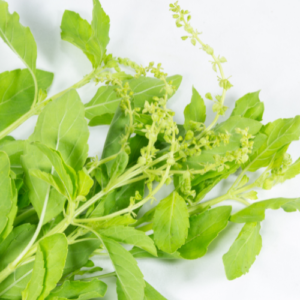
Chewing basil leaves can help correct low blood pressure. Chewing five to six basil leaves every day in the morning makes blood pressure normal. Basil leaves contain potassium, magnesium, and vitamin C, which help control your blood pressure. Basil also contains eugenol, an antioxidant that keeps blood pressure in check and reduces cholesterol levels.
Raisins Beneficial for Low Blood Pressure:
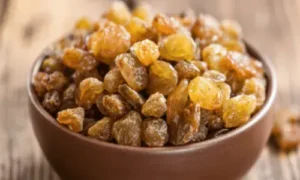
Soak 50 grams of desi chana and 10 grams of raisins in 100 grams of water in any glass container at night. In the morning, chew the chickpeas with raisins well and drink the water. You can also use only raisins.
Carrot Beneficial for Low Blood Pressure:
Carrot and spinach juice can be beneficial for low blood pressure. For this, mix about 200 grams of carrot juice with three-quarters of spinach juice.
Cinnamon Beneficial for Low Blood Pressure:
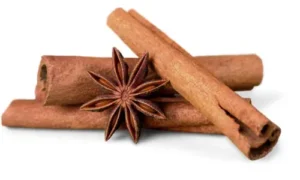
Taking cinnamon powder with warm water every day can also benefit you. Use this remedy morning and evening.
Gooseberries Juice Beneficial for Low Blood Pressure:
If you have complaints of dizziness due to low blood pressure, consuming amla juice with honey provides relief. In addition to this, Gooseberries condiment or jam can also be a better option for patients with blood pressure.
Tomato Beneficial in Low Blood Pressure:
Adding a little black pepper and salt to tomato juice and drinking it can benefit low blood pressure in a short time.
Dates Beneficial for Low Blood Pressure:
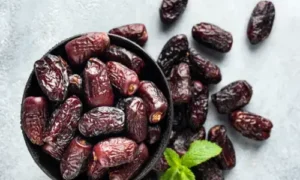
Drinking dates boiled in milk can also be beneficial for complaints of low blood pressure. You can also drink milk by eating dates.
Ginger Mixture Beneficial in Low Blood Pressure:
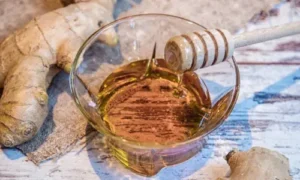
Cut small pieces of ginger, mix them with lemon juice and rock salt, and keep them. Now consume it in small quantities before meals daily. You can also take it 3 to 4 times a day throughout the day. Doing this will benefit those with low blood pressure in a few days.
Buttermilk Beneficial for Low Blood Pressure:
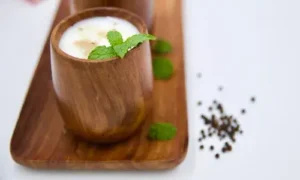
Adding salt, roasted cumin, and asafetida to buttermilk can help keep blood pressure under control and help in staying in normal pressure conditions.
Beetroot Juice Beneficial in Low Blood Pressure:
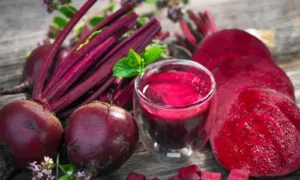
Beetroot juice is quite effective in maintaining low blood pressure. Regular consumption of it helps control blood pressure and reduces cholesterol levels.
When should I go to the doctor?
If there is a concern about low BP, it’s advisable to check it while lying down and standing up. Immediately consult a specialist doctor. If experiencing low BP due to medication, you can consult the doctor to either reduce or stop the medication as per their advice.
Frequently Asked Questions About Low Blood Pressure
What issues can low blood pressure cause?
Low BP can lead to kidney and heart problems, heart failure, damage to the nervous system and brain, and conditions like stroke, dementia, brain disorders, kidney disease. It also increases the risk of serious injuries due to frequent bouts of dizziness.
How can you prevent low blood pressure?
To prevent low BP, consider lifestyle changes like avoiding sudden posture changes, eating balanced meals regularly, managing stress, including specific foods in your diet, staying hydrated, and getting enough sleep.
What can you do at home for low blood pressure?
Home remedies for low BP include having caffeine in tea or coffee, chewing basil leaves, soaking desi chana and raisins overnight, drinking carrot and spinach juice, taking cinnamon powder with warm water, having amla juice or condiment, adding black pepper and salt to tomato juice, drinking dates boiled in milk, making a ginger mixture, and including buttermilk and beetroot juice in your diet.
You May Read Also:
- Throat Pain Relief: Natural Solutions Unveiled (usashiva.com)
- Hidden Superpowers of Soybeans – You Won’t Believe
- Unlock the Hidden Power of Muskmelon: From Disease Resistance to Weight Loss, Discover the Incredible Benefits You Never Knew!
- CARDAMOM: UNVEILING THE DELIGHTS AND HEALTH BENEFITS
- Gooseberries with Ageless Beauty (usashiva.com)

